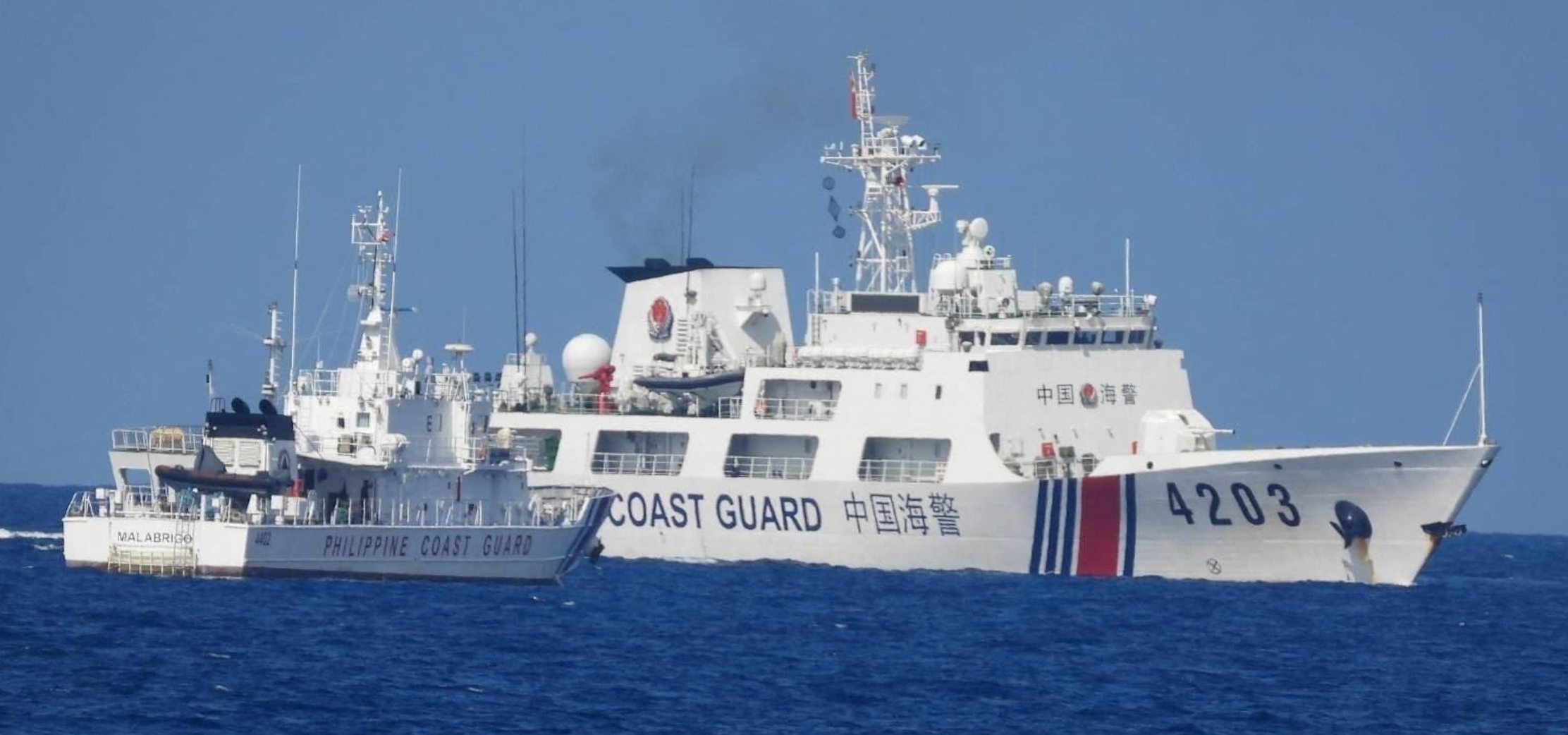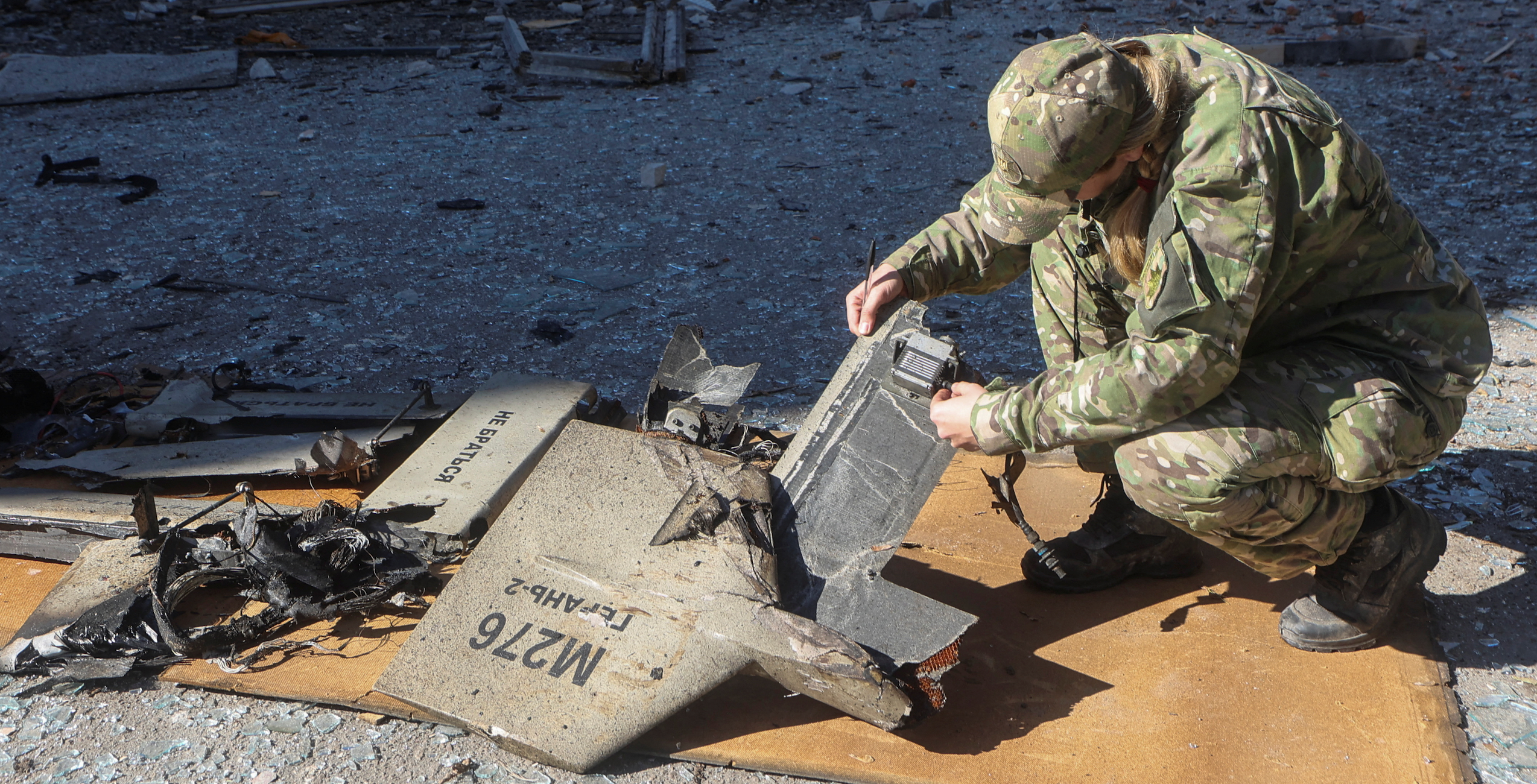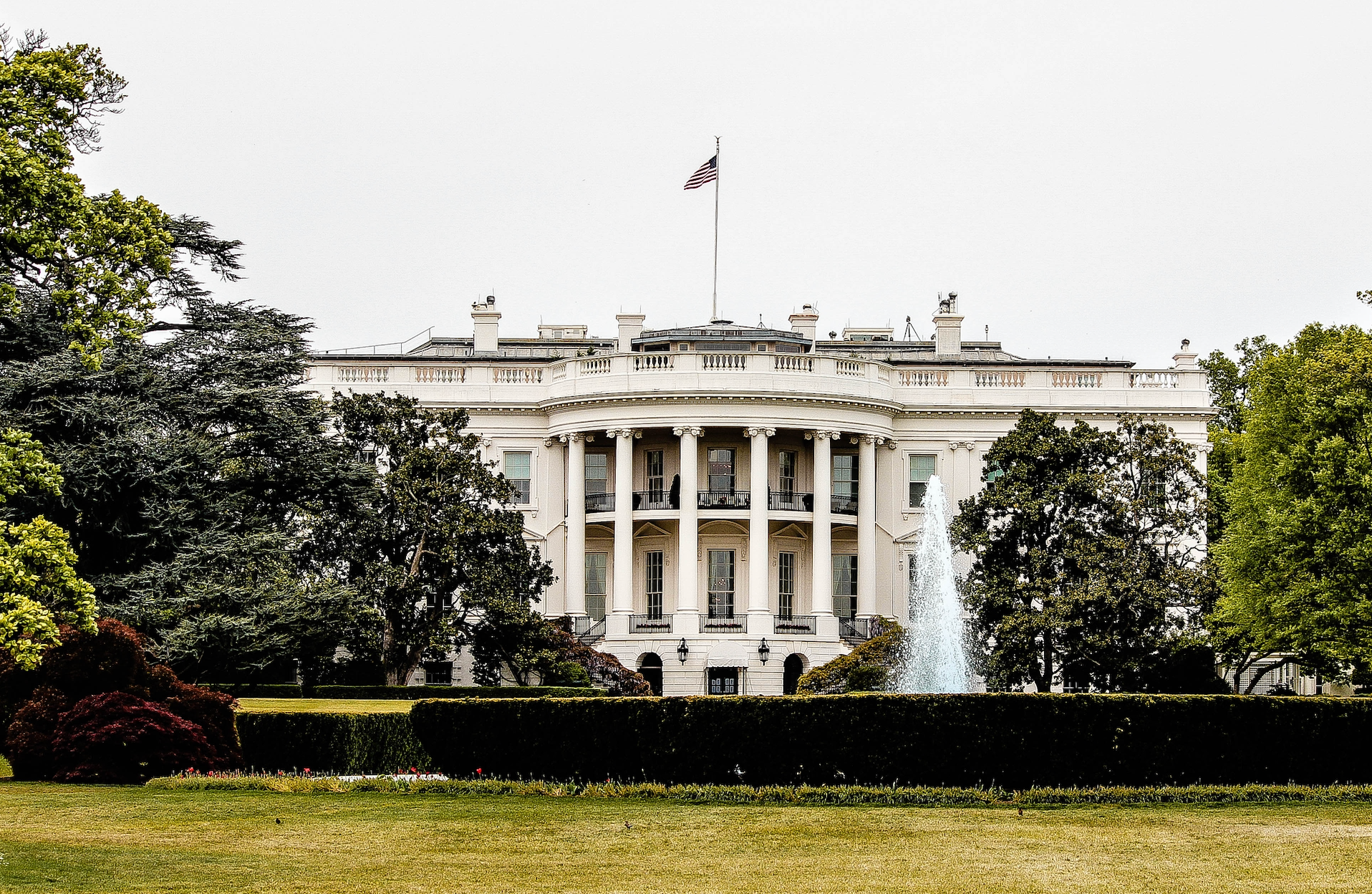
Philippines accuses China of more “harassment” near disputed reef
PHOTO CAPTION: A Chinese Coast Guard ship allegedly obstructs the Philippine Coast Guard vessel Malabrigo as it provided support during a Philippine Navy operation near Second Thomas Shoal in the disputed South China Sea, June 30, 2023 in this handout image released July 5, 2023. Philippine Coast Guard/Handout via REUTERS
MANILA (Reuters) - The Philippines on Wednesday accused China's coast guard of harassment, obstruction and "dangerous manoeuvres" against its vessels, after another incident near a strategic feature of the South China Sea that has become a flashpoint between them.
Philippine coast guard boats were assisting a naval operation on June 30 when they were "constantly followed, harassed, and obstructed by the significantly larger Chinese coast guard vessels", Philippine coast guard spokesperson Jay Tarriela, said in a Tweet.
It took place near the Second Thomas Shoal, a submerged reef over which the Philippines stakes a claim to sovereignty via a handful of troops who live aboard a rusty World War Two-era American ship that was intentionally grounded in 1999.
China's embassy in Manila did not immediately respond to a request for comment and the issue was not mentioned at a regular briefing on Wednesday by the foreign ministry in Beijing.
Tarriela said the vessels had to reduce speed to prevent a collision.
He not say what the naval operation entailed. The Philippine military conducts regular resupply missions for the troops on the U.S. ship, the Sierra Madre, including in February, when it accused China of aggression and directing a "military-grade laser" at of its vessels.
The shoal is located inside the Philippines' 200-mile exclusive economic zone. Tarriela described as "alarming" what he said was the presence of Chinese navy ships in the area, adding that raised "greater concerns".
China has previously said its coast guard were conducting regular operations in what are Chinese waters.
China claims sovereignty over almost the entire South China Sea via a "nine-dash line" on its maps that cuts into the exclusive economic zones of Vietnam, the Philippines, Malaysia, Brunei and Indonesia.
The Permanent Court of Arbitration in 2016 said that line has no basis under international law.
(Reporting by Karen Lema; Editing by Martin Petty)









